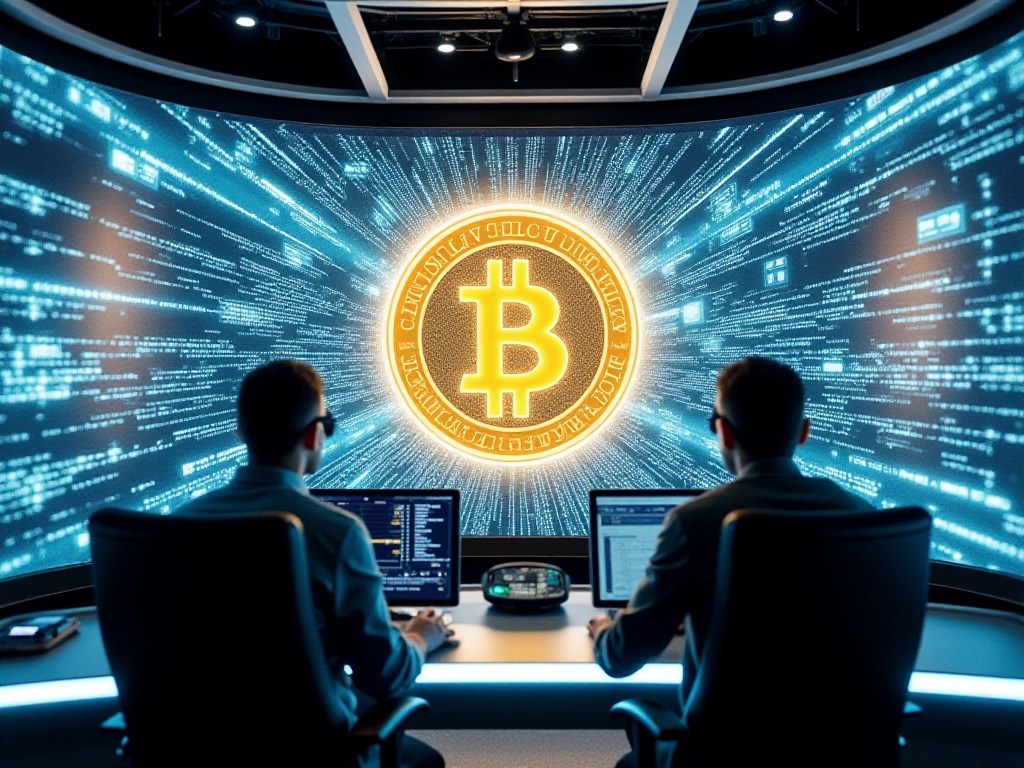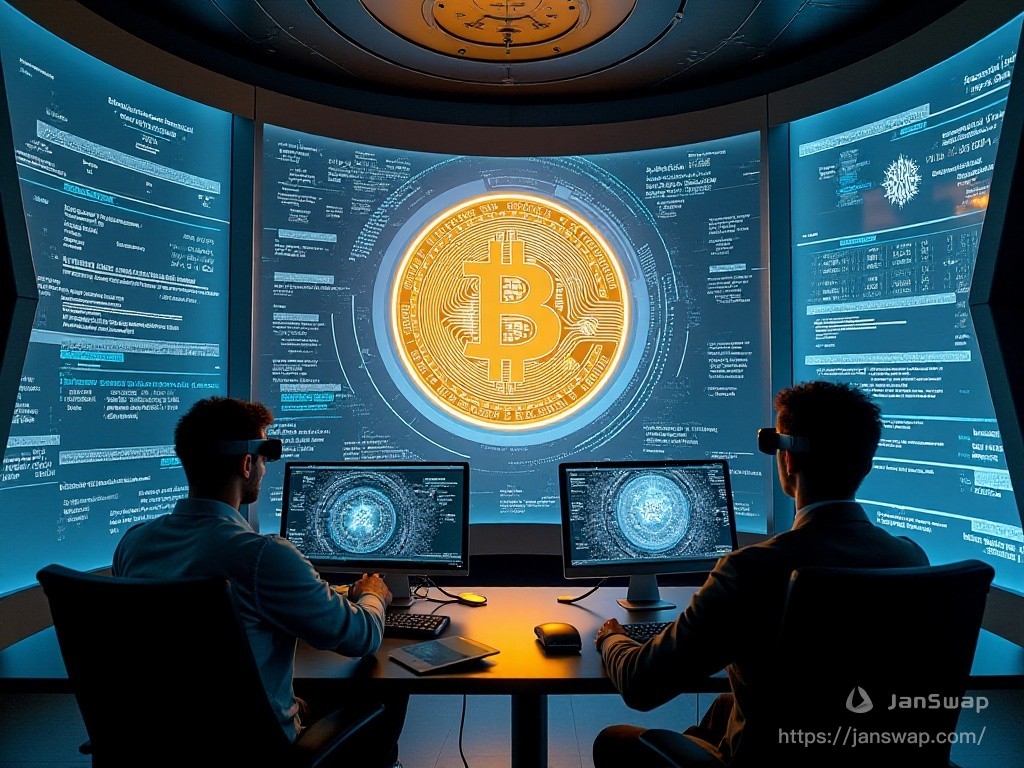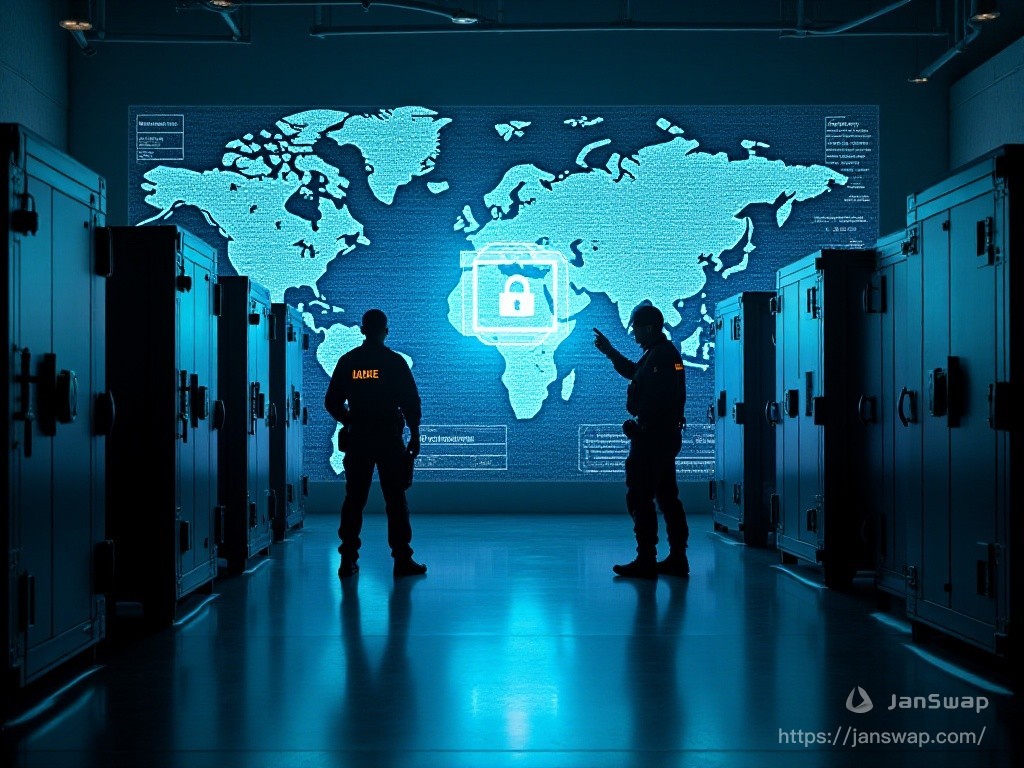

Introduction
In recent conversations with friends in the crypto space, I've noticed that many still think "setting a strong password is enough" when it comes to asset security. As a veteran who has been through many ups and downs in the crypto world, I've witnessed too many people suffer heavy losses due to weak security awareness. I remember when I first entered the crypto space, I was also clueless and knew nothing about security. After years of experience and lessons learned, I feel it's necessary to have a thorough discussion about this topic.
Security Awareness
When it comes to asset security, you might think it's a very technical and boring topic. But let me ask you: What would you do if your house was robbed? What would you do if your bank card was compromised? I'm sure you take these traditional asset security issues seriously. So why do many people become less cautious when it comes to digital assets?
Last year, I met a newcomer to crypto who loved sharing his investment gains on social media, even carelessly posting his wallet addresses. I warned him this was dangerous, but he thought I was overreacting. As expected, he was soon targeted and nearly suffered major losses.
In my view, cryptocurrency security requires even more attention than traditional assets. Why? Because once something goes wrong, you might not even be able to trace where the stolen assets went. In 2022, global cryptocurrency theft totaled $3.6 billion, a shocking figure. What's more frightening is that less than 5% of these stolen assets were recovered. What does this mean? It means once your cryptocurrency is stolen, you can basically say goodbye to it.
Today's hackers are becoming increasingly sophisticated, exploiting not only technical vulnerabilities but also using social engineering to obtain your information. For instance, they might pose as exchange customer service representatives or crypto influencers, gaining your trust before executing their scams. I've seen people receive supposed "airdrop" emails, only to have their entire wallets emptied after clicking the link.
Technical Foundations
When discussing asset security, we must address blockchain technology. Many people might ask: "Isn't blockchain supposed to be secure? Why can assets still be stolen?"
This brings us to blockchain basics. Imagine blockchain as a transparent safe - everyone can see what's inside, but only those with the key can open it. This "key" is what we call the private key.
Speaking of private keys, I must share an interesting story. A friend of mine wrote his private key under his bed board to remember it. When he moved, he completely forgot about it, and by the time he remembered, the bed board had already been disposed of as waste. This lesson teaches us that even the most concealed storage method is unsafe without a proper backup system.
Here's a vivid example: When you open a bank account, the bank gives you a card and PIN. In the cryptocurrency world, your wallet address is like your bank account number, and your private key is like the PIN. But there's a crucial difference: a forgotten bank PIN can be reset, but a lost private key is gone forever.
I often see people storing private keys in phone notes or sending them through WeChat as backup. These practices are extremely dangerous. Phones can be lost, WeChat accounts can be hacked, and these platforms' servers can be attacked. Remember, nothing is absolutely secure in the digital world.
Blockchain security mainly comes from its decentralized nature. Each transaction requires verification by multiple network nodes, making transaction record tampering nearly impossible. However, this security doesn't protect your private key. Just like a safe - no matter how sturdy it is, if the key is lost or stolen, the contents aren't secure.

Practical Guide
After all this theory, let's get to some practical advice. Here are the most important security recommendations:
First is wallet security. According to DappRadar, over 70% of cryptocurrency theft cases in the first half of 2023 were related to wallet security. This data tells us that wallet security is both fundamental and crucial.
I recommend using hardware wallets for storing large amounts of assets. While hardware wallets aren't as convenient as hot wallets, they're much more secure. I personally use three different brands of hardware wallets to store different assets.
Distributed storage is important - just as we wouldn't keep all our money in one wallet, it's advisable to distribute cryptocurrency between hot and cold wallets. Keep only small amounts needed for trading in hot wallets, like cash we carry daily. Most assets should be stored in cold wallets, like keeping money in a bank vault.
Regarding hot wallets, many people prefer exchange wallets, thinking large platforms should be secure. However, there have been too many instances of exchanges being hacked or exit scamming. Remember the old saying: "Not your keys, not your coins." So, only keep coins you need to trade on exchanges, and transfer the rest to wallets you control.
Next is private key protection. Your private key is your lifeline - never store it on computers or phones. My approach is to split the private key into several parts and store them in different secure locations. Statistics show that about 15% of Bitcoin is irretrievable due to lost private keys. This number sounds scary but is very real.
I know a veteran user who uses an interesting method to protect his private key. He splits it into three parts and stores them in bank safety deposit boxes in three different cities. This way, even if one or two locations have issues, his assets remain secure. While this might seem extreme, such protective measures are necessary for large assets.
Finally, backup strategy. I know many friends find backups troublesome, but according to CipherTrace research, about 40% of cryptocurrency losses occur due to lack of proper backups. Backing up isn't just making a copy - it's about establishing a complete backup system.
My backup strategy is as follows: First, I engrave the seed phrase on metal plates for fire and water resistance. Then, I backup private keys using multi-signature methods, requiring multiple keys to move assets. Finally, I regularly check backups quarterly to ensure everything works properly.
Environmental security is also crucial. We should ensure network security when performing any cryptocurrency operations. It's best to use dedicated devices for cryptocurrency operations, avoiding general web browsing or installing other software. You never know which seemingly normal webpage or software might contain malware.

Real Cases
Let me share a real case. Last year, a friend lost $200,000 worth of cryptocurrency overnight because he used a web wallet on an unsecured network and was targeted by hackers. This taught a profound lesson, which is why I now pay special attention to these security details.
This friend was handling his cryptocurrency assets in a café. He used the public WiFi without a VPN and logged directly into his web wallet. Hackers obtained his login information through a man-in-the-middle attack and transferred his assets while he wasn't paying attention.
The scariest part was that he didn't even know exactly where the security breach occurred. His password was complex, and he had two-factor authentication enabled, but hackers still broke through. This shows us that security isn't a single-point issue but a systematic one. A vulnerability in any link can cause the entire system to collapse.
Another case involves social media security. A crypto influencer who frequently shared investment experiences and portfolio information on social media attracted hackers' attention. By collecting various information from his social media, hackers successfully guessed his wallet password, resulting in asset theft.
This teaches us to be especially careful with information security on social media. Don't show off your trades, don't reveal your holdings, and never disclose any information that might be password-related. Sometimes, seemingly irrelevant information could be the key to your wallet in a hacker's hands.

Future Outlook
As cryptocurrency becomes more mainstream, security issues will only become more important. According to Chainalysis predictions, cryptocurrency-related security spending will reach $10 billion by 2025. What does this number tell us? It tells us that security isn't optional but a core issue that must be taken seriously.
I expect more cryptocurrency-specific security solutions to emerge in the future. For instance, some insurance companies have already started offering cryptocurrency asset insurance. While premiums are high, this might be worth considering for large holders.
Meanwhile, we must recognize that hacker attack methods are constantly evolving. They might use AI technology for more precise attacks or quantum computing technology to break current encryption algorithms. This means we must continuously update our security awareness and measures.
I believe future cryptocurrency security might move toward a "multi-layer protection" approach. Like bank security systems, we'll need both technical and institutional protections, and might even need third-party regulatory bodies for additional security guarantees.
However, regardless of technological developments, basic security awareness will always be most important. Like driving, good safety habits are more important than relying on various security tools. In the cryptocurrency world, developing good security habits is more important than depending on security tools.

Conclusion
After reading all this, what new insights have you gained about cryptocurrency security? Feel free to share your thoughts and experiences in the comments. Remember, in the cryptocurrency world, security always comes first. After all, earning money is hard, but keeping it is harder.
Finally, I want to say that security isn't something achieved overnight but a process requiring long-term accumulation and continuous learning. Everyone can make mistakes; the key is learning from them and continuously improving your security system.
Have you encountered any cryptocurrency security issues? Or do you have any good security advice to share? Let's discuss and raise security awareness together. After all, in this rapidly developing cryptocurrency world, only by learning from and reminding each other can we truly protect our asset security.






 Français
Français Deutsch
Deutsch Русский
Русский Português
Português Español
Español Italiano
Italiano Türk
Türk
